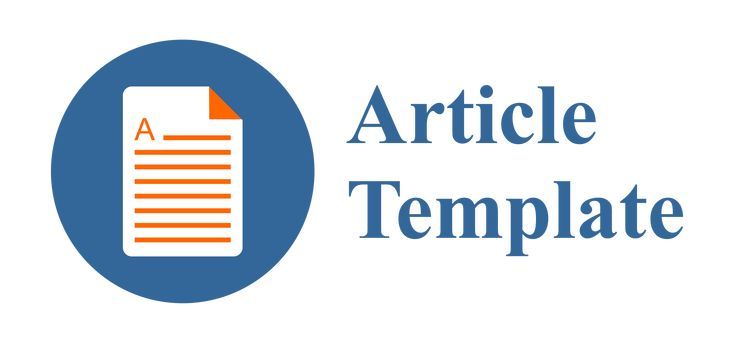Dependency Parsing for Arabic Quran using Easy-First Parsing Algorithm
DOI:
https://doi.org/10.29408/edumatic.v4i2.2453Keywords:
Dependency Parsing, Easy-first Parsing, Quran ArabicAbstract
Arabic is the main language of Al-Quran. Nowadays, many people are studying the Language of Al-Quran, called Quran Arabic. For the beginners, it is important for them to understand the syntactic relationship in a sentence found in the Qur'an. If they do not understand enough, the interpretation will be different and wrong. It will turn into dangerous because Al-Quran is a source of guidance for Muslims’ life. Dependency parsing is very important for linguistic research, especially for rich languages such as the Arabic Language. This study aims to build dependency parsing, in order to make it easier to get to understand syntactic relationship information in sentences. This study uses a parsing method called deterministic parsing, which the method used is shift-reduce parsing with the Easy-First parsing algorithm. The evaluation used labeled attachment score calculation. The score generated from the evaluation was 69.7, beforehand, the comparison both the system results and the gold standard have been done. 62 sentences found the correct head and relation in each word. The number of words found to be wrong is not more than 3 words in one sentence. Evaluation scores produced are not exorbitant due to the complicated tagset used and lacking test sentences.
References
Aqila, N., & Bijaksana, M. A. (2020). Developing Set of Word Senses of Vocabulary in Al-Qur’an. Edumatic: Jurnal Pendidikan Informatika, 4(1), 83–90.
Bird, S., Klein, E., & Loper, E. (2009). Natural language processing with Python: analyzing text with the natural language toolkit. O’Reilly Media.
Dukes, K., & Habash, N. (2010). Morphological annotation of quranic Arabic. In Proceedings of the 7th International Conference on Language Resources and Evaluation, 2530–2536. Valletta, Malta.
Goldberg, Y., & Elhadad, M. (2010). An efficient algorithm for easy-first non-directional dependency parsing. In Human Language Technologies: The 2010 Annual Conference of the North American Chapter of the Association for Computational Linguistics, 742–750. Stroudsburg, PA, USA.
Kamayani, M., & Purwarianti, A. (2011). Dependency parsing for Indonesian. Proceedings of the 2011 International Conference on Electrical Engineering and Informatics, 1–5. https://doi.org/10.1109/ICEEI.2011.6021552
Kannan, S., Gurusamy, V., Vijayarani, S., Ilamathi, J., Nithya, M., Kannan, S., & Gurusamy, V. (2015). Preprocessing Techniques for Text Mining. International Journal of Computer Science & Communication Networks, 5(1), 7–16.
Li, Z., Cai, J., & Zhao, H. (2019). Effective representation for easy-first dependency parsing. 15th Pacific Rim International Conference on Artificial Intelligence, 351–363. Springer, Cham. https://doi.org/10.1007/978-3-030-29908-8_28
Marton, Y., Habash, N., & Rambow, O. (2010). Improving Arabic dependency parsing with lexical and inflectional morphological features. In Proceedings of the NAACL HLT 2010 First Workshop on Statistical Parsing of Morphologically-Rich Languages, 13–21. Stroudsburg, PA: Association for Computational Linguistics.
Medium. (2019). Dependency Parsing in NLP. Retrieved from https://medium.com/@5hirish/dependency-parsing-in-nlp-d7ade014186
Mullen, L. A., Benoit, K., Keyes, O., Selivanov, D., & Arnold, J. (2018). Fast, Consistent Tokenization of Natural Language Text. The Journal of Open Source Software, 3(23), 655. https://doi.org/10.21105/joss.00655
Nguyen, B. D., Nguyen, K. Van, & Nguyen, N. L.-T. (2018). LSTM Easy-first Dependency Parsing with Pre-trained Word Embeddings and Character-level Word Embeddings in Vietnamese. 10th International Conference on Knowledge and Systems Engineering (KSE), 187–192. Vietnam: IEEE. https://doi.org/10.1109/KSE.2018.8573397
Nivre, J. (2012). Storage in Deterministic Dependency Parsing. Retrieved from https://pdfs.semanticscholar.org/bab0/0d5cac223027b22d5ba15dc19ec56773dee0.pdf
Nivre, J., & Fang, C.-T. (2017). Universal dependency evaluation. Proceedings of the NoDaLiDa 2017 Workshop on Universal Dependencies, 86–95. Sweden: Association for Computational Linguistics
Pei, W., Ge, T., & Chang, B. (2015). An effective neural network model for graph-based dependency parsing. Proceedings of the 53rd Annual Meeting of the Association for Computational Linguistics and the 7th International Joint Conference on Natural Language Processing, 313–322. China: Association for Computational Linguistics. https://doi.org/10.3115/v1/P15-1031
Salim, A. G. (2015). Peran Kitab Suci Al-Qur’an dalam Menjaga Eksistensi Bahasa Arab. Okara, 1, 1–16.
Taqwa, S. R. (2019). Implementasi Ekstraksi Informasi Pada Surat Keputusan Menggunakan Metode Support Vector Machine. Skripsi. Program Sarjana. Universitas Komputer Indonesia.
ThoughtCo. (2019). What Is Parsing? Definition and Examples in English Grammar. Retrieved fromh ttps://www.thoughtco.com/parsing-grammar-term-1691583
Wardana, H. K., Swanita, I., & Yohanes, B. W. (2019). Sistem Pemeriksa Pola Kalimat Bahasa Indonesia berbasis Algoritme Left-Corner Parsing dengan Stemming. Jurnal Nasional Teknik Elektro Dan Teknologi Informasi, 8(3), 211. https://doi.org/10.22146/jnteti.v8i3.515
Yoyo, Y., & Mukhlis, A. (2019). Historiography of the Arabic Grammar in Europe: The Legacy of Wright’s Arabic Grammar. Proceedings of the First International Conference on Progressive Civil Society, 317(IConProCS), 212–215. https://doi.org/10.2991/iconprocs-19.2019.45
Downloads
Published
How to Cite
Issue
Section
License
All articles in this journal are the sole responsibility of the authors. Edumatic: Jurnal Pendidikan Informatika can be accessed free of charge, in accordance with the Creative Commons license used.

This work is licensed under a Lisensi a Creative Commons Attribution-ShareAlike 4.0 International License.




